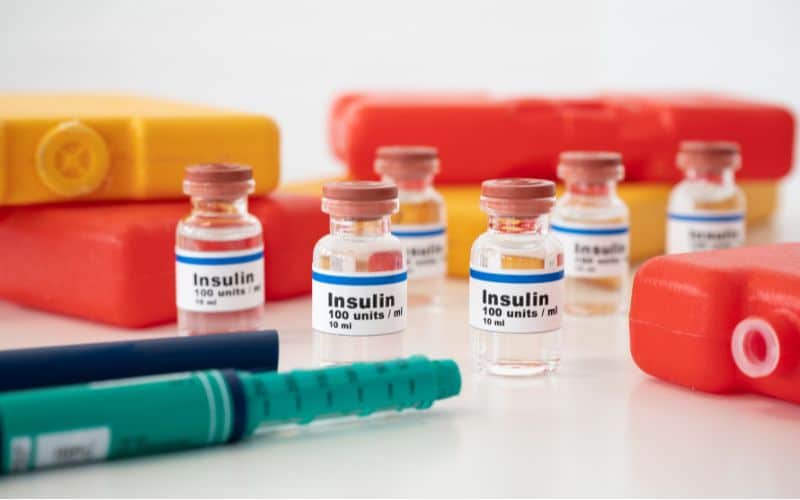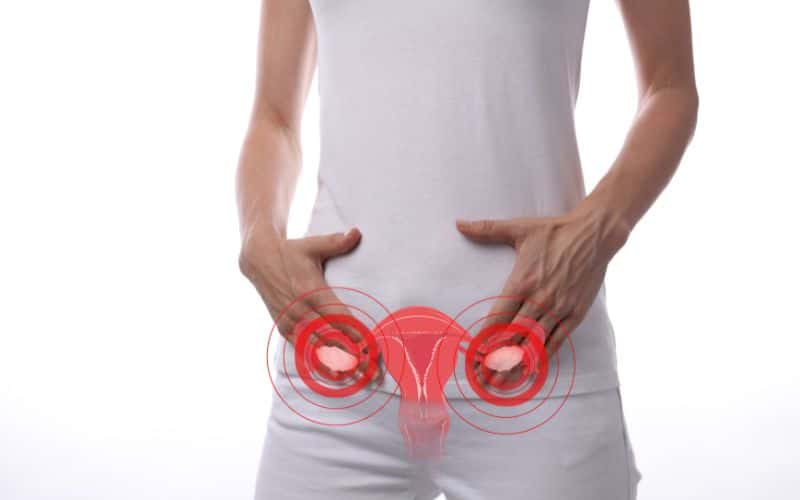Hormonal imbalances can have a significant impact on weight loss efforts. Hormones are responsible for regulating various bodily functions, including metabolism, appetite, and fat storage. When hormones are out of balance, it can make it challenging to lose weight, even with a healthy diet and regular exercise.
Insulin, the hormone that regulates blood sugar levels, is one hormone that can affect weight loss. When insulin levels are high, it can lead to increased fat storage and difficulty burning fat. Other hormones, such as cortisol and leptin, can also impact weight loss efforts. Cortisol, the stress hormone, can lead to increased appetite and cravings for unhealthy foods, while leptin, the hormone that regulates hunger, can become resistant, leading to overeating.
Understanding the role of hormones in weight loss can help individuals make more informed decisions about their health and wellness. By working with healthcare professionals, individuals can identify any hormonal imbalances and develop a personalized plan to address them. With the right approach, it is possible to achieve sustainable weight loss and improve overall health and wellbeing.
Contents
Understanding Hormonal Imbalances

Hormones are chemical messengers produced by glands in the endocrine system that regulate various bodily functions such as metabolism, growth, and reproduction. Hormonal imbalances can occur due to several reasons, including stress, poor nutrition, genetics, and environmental factors. These imbalances can lead to various health problems, including weight gain or loss.
When hormones are out of balance, they can affect the body's ability to burn calories, store fat, and control appetite. Hormones that play a significant role in weight regulation include insulin, cortisol, leptin, ghrelin, and thyroid hormones.
Insulin is a hormone produced by the pancreas that regulates blood sugar levels. When insulin levels are high, the body stores more fat, and it becomes challenging to burn stored fat. Cortisol, also known as the stress hormone, is produced by the adrenal glands. Elevated cortisol levels can lead to increased appetite, cravings for high-calorie foods, and weight gain.
Leptin is a hormone produced by fat cells that signals the brain when the body has had enough to eat. When leptin levels are low, the body may not receive the signal to stop eating, leading to overeating and weight gain. Ghrelin is a hormone produced in the stomach that stimulates appetite. When ghrelin levels are high, the body may be more prone to overeating and weight gain.
Thyroid hormones play a crucial role in regulating metabolism. When thyroid hormone levels are low, the body's metabolic rate slows down, making it more challenging to lose weight.
It is essential to understand that hormonal imbalances can be complex and often require medical intervention. However, making lifestyle changes such as eating a balanced diet, getting regular exercise, managing stress, and getting enough sleep can help support hormonal balance and promote healthy weight management.
Role of Hormones in Weight Management
Hormones play a crucial role in regulating body weight and metabolism. Hormonal imbalances can lead to weight gain or difficulty losing weight. In this section, we will discuss the role of hormones in weight management, including insulin, cortisol, and leptin resistance.
Insulin and Weight Loss

Insulin is a hormone that regulates blood sugar levels and helps the body store excess glucose as fat. When insulin levels are high, the body is in fat-storing mode, which can make it difficult to lose weight. High levels of insulin can also lead to insulin resistance, a condition where the body's cells become less responsive to insulin, which can further contribute to weight gain.
To manage insulin levels, it is important to follow a healthy diet that is low in refined carbohydrates and sugar. Eating a diet high in fiber, protein, and healthy fats can also help regulate insulin levels and promote weight loss.
Cortisol and Stress-Induced Weight Gain
Cortisol is a hormone that is released in response to stress. High levels of cortisol can lead to weight gain, particularly in the abdominal area. Cortisol can also increase appetite and cravings for unhealthy foods, which can further contribute to weight gain.
To manage cortisol levels, it is important to practice stress-reducing activities such as meditation, yoga, or deep breathing exercises. Getting enough sleep and regular exercise can also help reduce cortisol levels and promote weight loss.
Leptin Resistance and Obesity
Leptin is a hormone that regulates appetite and metabolism. When leptin levels are low, the body may increase appetite and reduce metabolism, leading to weight gain. Leptin resistance, a condition where the body's cells become less responsive to leptin, can also contribute to obesity.
To manage leptin levels, it is important to follow a healthy diet that is high in protein and fiber. Eating regular meals and avoiding processed foods can also help regulate leptin levels and promote weight loss.
In conclusion, hormonal imbalances can contribute to weight gain and difficulty losing weight. By managing insulin, cortisol, and leptin levels through diet and lifestyle changes, it is possible to promote weight loss and improve overall health.
Hormonal Issues and Weight Loss
When it comes to losing weight, hormonal imbalances can be a significant factor that may hinder progress. Hormones are responsible for regulating many bodily functions, including metabolism, appetite, and fat storage. Therefore, when hormones are out of balance, it can lead to weight gain or difficulty losing weight.
Polycystic Ovary Syndrome (PCOS) and Weight Gain

Polycystic Ovary Syndrome (PCOS) is a hormonal disorder that affects women of reproductive age. It is characterized by high levels of androgens (male hormones) and insulin resistance. These hormonal imbalances can lead to weight gain, especially in the abdominal area.
Women with PCOS may find it challenging to lose weight, even with diet and exercise. Insulin resistance can make it difficult for the body to use glucose for energy, leading to increased fat storage. Additionally, high levels of androgens can cause an increase in appetite, making it harder to stick to a calorie-restricted diet.
Hypothyroidism and Weight Gain
Hypothyroidism is a condition in which the thyroid gland does not produce enough thyroid hormone. This hormone is responsible for regulating metabolism, and when levels are low, it can lead to weight gain.
People with hypothyroidism may experience a slower metabolism, making it harder to burn calories. Additionally, they may experience fatigue, making it harder to engage in physical activity. This combination can lead to weight gain and difficulty losing weight.
Menopause and Weight Gain
Menopause is a natural transition that occurs in women as they age. During this time, the body undergoes significant hormonal changes, including a decrease in estrogen levels. This decrease in estrogen can lead to weight gain, especially in the abdominal area.
Additionally, menopause can lead to a decrease in muscle mass, which can slow down metabolism. This can make it harder to burn calories and lead to weight gain. Women going through menopause may also experience hot flashes, mood changes, and fatigue, making it harder to engage in physical activity.
In conclusion, hormonal imbalances can play a significant role in weight gain and difficulty losing weight. By addressing underlying hormonal issues, individuals may find it easier to achieve their weight loss goals.
Diagnosing Hormonal Issues Related to Weight Loss

Hormonal imbalances can cause weight gain or prevent weight loss, making it difficult to achieve your desired weight. If you suspect that you may have a hormonal issue related to weight loss, it is important to get a proper diagnosis from a healthcare professional. Here are some steps that you can take to diagnose hormonal issues related to weight loss:
1. Keep track of your symptoms
The first step in diagnosing hormonal issues related to weight loss is to keep track of your symptoms. Common symptoms of hormonal imbalances include unexplained weight gain or weight loss, fatigue, constipation, and changes in mood or energy levels. Keeping a journal of your symptoms can help you identify patterns and provide valuable information to your healthcare provider.
2. Get a blood test
A blood test can help identify hormonal imbalances that may be affecting your weight loss efforts. Your healthcare provider may recommend a comprehensive metabolic panel (CMP) or thyroid function tests to check your hormone levels. These tests can help identify imbalances in hormones such as insulin, cortisol, thyroid hormones, and sex hormones.
3. Consider other medical conditions
Other medical conditions can also cause weight gain or prevent weight loss. Your healthcare provider may also consider other medical conditions, such as diabetes, polycystic ovary syndrome (PCOS), or hypothyroidism, when diagnosing hormonal issues related to weight loss.
4. Work with a healthcare professional
Working with a healthcare professional is essential in diagnosing and treating hormonal issues related to weight loss. Your healthcare provider can help you interpret your test results and develop a personalized treatment plan that addresses your specific hormonal imbalances. This may include lifestyle changes, such as dietary modifications and exercise, as well as medication or hormone therapy.
In summary, diagnosing hormonal issues related to weight loss requires a comprehensive approach that involves keeping track of your symptoms, getting a blood test, considering other medical conditions, and working with a healthcare professional. By taking these steps, you can identify and treat hormonal imbalances that may be preventing you from achieving your weight loss goals.
Treatment and Management of Hormonal Issues for Weight Loss
When it comes to treating hormonal imbalances, there are two main approaches: medical treatments and lifestyle changes. While medical treatments can be effective, lifestyle changes are often the first step in managing hormonal issues for weight loss.
Medical Treatments
Medical treatments for hormonal imbalances can vary depending on the specific hormone that is causing the issue. For example, medications such as metformin or insulin may be prescribed for individuals with insulin resistance or type 2 diabetes. Hormone replacement therapy may be recommended for women experiencing menopause-related hormonal imbalances.
It is important to note that medical treatments should always be prescribed and monitored by a healthcare provider. Additionally, while medical treatments can be effective, they may come with potential side effects and risks.
Lifestyle Changes

Lifestyle changes can be an effective way to manage hormonal imbalances for weight loss. Some lifestyle changes that may be recommended include:
- Eating a balanced diet: Eating a diet that is rich in whole foods, such as fruits, vegetables, lean proteins, and whole grains, can help support hormonal balance and weight loss.
- Exercising regularly: Regular exercise can help improve insulin sensitivity, support weight loss, and promote hormonal balance.
- Managing stress: Chronic stress can contribute to hormonal imbalances, so finding ways to manage stress, such as through meditation or yoga, may be beneficial.
- Getting enough sleep: Sleep is important for regulating hormones, so getting enough sleep each night can help support hormonal balance.
It is important to note that lifestyle changes can take time to have an impact and may require ongoing effort and commitment. However, making these changes can be a sustainable way to manage hormonal imbalances and support weight loss.
Conclusion
In conclusion, hormonal imbalances can play a significant role in weight loss struggles. Hormones such as insulin, cortisol, and estrogen can all impact weight management, making it challenging to maintain a healthy weight.
While there are no quick fixes for hormonal imbalances, there are steps that can be taken to help manage them. These steps include regular exercise, stress management techniques, and a healthy diet that includes whole, nutrient-dense foods.
It's important to note that weight loss is not always a linear process, and setbacks can happen along the way. However, with patience, persistence, and a focus on overall health and wellness, it is possible to achieve and maintain a healthy weight.
If you are struggling with weight loss despite your best efforts, consider speaking with a healthcare professional to rule out any underlying medical conditions that may be contributing to the issue. Remember, everyone's journey is unique, and what works for one person may not work for another.






